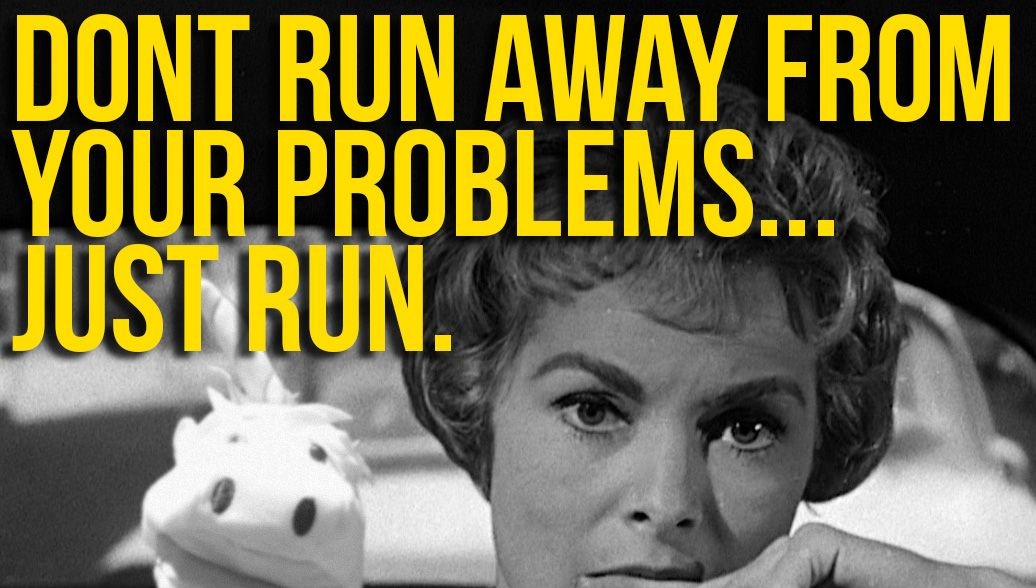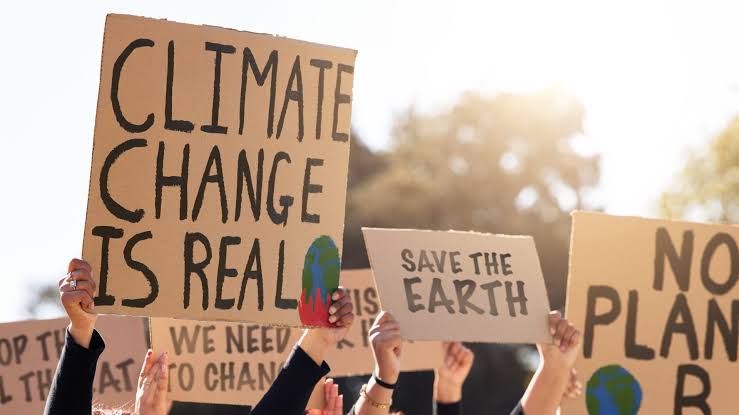The Paradox of Plenty in the Information Age: Why More Isn’t Always Better

In 1840, Eliza, a farmer’s wife in rural Yorkshire, heard a rumor from a passing peddler about a “great fire” in London. Starved for details, she waited weeks for a tattered newspaper to reach her village, only to find a single paragraph mentioning the blaze, already months old. Her world was confined to local gossip, the occasional sermon, and letters that took days to arrive. Contrast this with today, where a single click floods us with live updates, videos, and opinions from across the globe, often overwhelming our ability to process it all. This deluge of information, enabled by the internet and other forms of media, shapes our lives in ways Eliza could never have imagined, raising questions about its impact on our minds and society.
One would expect that the near-limitless access we have to diverse kinds of information would be attended by a commensurate thirst and desire for the knowledge that we have at our fingertips—quite literally. In an era where a smartphone can summon the collective wisdom of humanity in seconds, from scholarly articles to real-time global news, one might anticipate a renaissance of curiosity, where individuals eagerly dive into this vast digital library to deepen their understanding of the world. One would expect people to be better positioned to form well-thought-out and informed opinions, grounded in facts and nuanced perspectives, as they navigate complex issues with the aid of readily available data. One would expect unfounded superstition to be regarded for what it is—unfounded—and swiftly debunked by the overwhelming evidence accessible through a simple search. The promise of the internet age was a world of enlightened discourse, where misinformation would wither under the scrutiny of collective knowledge, and critical thinking would flourish as people engaged with diverse viewpoints and verified sources.
Yet, this idealized vision has not fully materialized. Instead of fostering a universal thirst for knowledge, the deluge of information has often led to paradox and paralysis. The sheer volume of data—articles, posts, videos, and opinions—can overwhelm rather than empower. Many find themselves skimming headlines rather than delving into substance, caught in a cycle of endless scrolling that prioritizes sensationalism over depth. Algorithms, designed to capture attention, often amplify polarizing or misleading content, creating echo chambers that reinforce biases rather than challenge them. Far from eradicating superstition, the internet has, in some cases, given it new life, with viral conspiracies and pseudoscience spreading faster than sober corrections. The ability to access credible information exists, but so does the temptation to cherry-pick sources that align with preconceived notions, leaving opinions as fragmented and dogmatic as ever.
The collusion of shallow thinking (resulting from people being loaded with more information per time than they can process and internalise) and group thinking (resulting from the overriding of autonomous and independent thinking due to the burden to fit into prevailing narratives and the ideas of others) brings about what we may call the “bubble paradox” whereby although the internet is filled with facts, evidence, and diverse perspectives, people are still isolated in sticking to malformed and uninformed dogmatic opinions. This paradox raises critical questions about how we process information in the digital age.
The cognitive load of sifting through an unending stream of content can lead to decision fatigue, where individuals default to simplistic narratives or disengage entirely. The democratization of information, while empowering, has also eroded trust in traditional gatekeepers—scientists, journalists, and institutions—without always replacing them with reliable alternatives. Misinformation thrives in this environment, not because information is scarce, but because attention is finite. People are not necessarily less curious, but they are often less equipped to navigate the chaotic marketplace of ideas, where truth competes with noise on equal footing.Moreover, the speed of information flow exacerbates these challenges. In Eliza’s time, news travelled slowly, allowing time for reflection, even if limited by scarce sources. Today, the pressure to react instantly—whether to a breaking news story or a viral post—leaves little room for deliberation. The expectation to have an opinion on every issue, from global politics to niche controversies, can lead to shallow takes rather than considered judgments. Social media platforms, while connecting us to diverse perspectives, also incentivize performative outrage over reasoned debate, further muddying the waters of understanding.
EFFECTS OF INFORMATION OVERLOAD
The effects of these on society are multidimensional. First, human minds are breaking. We are not wired to process the relentless flood of information that bombards us daily through screens, notifications, and endless digital noise. Our brains, designed for a world of relatively scarce and moderately disseminated knowledge, struggle to filter the avalanche of data—news, opinions, memes, and alerts—that demands our attention at every moment. This cognitive overload frays our mental capacity, leaving us scattered and unable to focus deeply. Instead of fostering clarity, the constant influx breeds anxiety, decision fatigue, and a creeping sense of inadequacy as we try to keep up with an impossible pace. People’s minds are not just overwhelmed; they are, in a sense, rotting—dulled by shallow engagement with clickbait and sound bites that erode critical thinking. Many find themselves less able to hold meaningful conversations, their thoughts fragmented by the need to check the next notification or scroll through an endless feed. This mental clutter manifests as emotional instability, with heightened irritability, impulsivity, and mood swings as the brain struggles to find equilibrium in a sea of stimuli.
This information deluge also takes a toll on human relationships. Human society is breaking. Glued to their screens, people are physically present but emotionally absent, prioritizing virtual interactions over real-world connections. The compulsive need to stay updated or respond to digital cues pulls us away from deep, face-to-face conversations, and this weakens bonds with family and friends. Social media’s curated facades fuel comparison and envy, while the pressure to perform online—through likes, shares, or witty takes—creates a performative layer that stifles authentic emotional exchange. As a result, empathy erodes, and misunderstandings fester in a world where nuanced dialogue is replaced by polarized arguments or fleeting chats. Far from making us smarter, this environment risks making us dumber, as we trade sustained reasoning for instant gratification and mistake information overload for knowledge. The cost is steep: a generation increasingly disconnected, emotionally volatile, and intellectually adrift, yearning for meaning in a world that offers too much noise and too little signal.
Third, this phenomenon has desensitized people to events that once provoked visceral reactions, our emotional responses to bad news are now dulled. Constant exposure to graphic images, sensationalized headlines, and endless streams of crises—from natural disasters to social injustices—has normalized tragedy and reduced once-shocking events to mere background noise. Where people might have once been outraged or deeply moved by reports of violence or suffering, the sheer volume of such stories now often elicits apathy or fleeting concern before attention shifts to the next alert. This desensitization erodes our capacity for empathy, as the brain, overwhelmed by the constant barrage, learns to tune out rather than engage. Social media amplifies this effect, with algorithms prioritizing sensational content that numbs rather than galvanizes, leaving us less likely to act on or even feel the weight of issues that once stirred collective action or moral outrage. As a result, our emotional bandwidth shrinks, and society risks becoming indifferent to the very problems that demand our attention and compassion. Religion is not left out in this unfortunate trend, as this overwhelming tide erodes the spiritual depth and ethical grounding that many faiths emphasize. The constant barrage we’re subjected to leaves little to no room for meditation or introspection, core practices in most religions that attempt to foster connection with the supernatural and cultivate robust value systems. Without this reflective space, individuals often develop shallow ethical frameworks, prioritizing instant gratification or societal trends over timeless moral principles. This environment also fosters cult-like tendencies, where people, starved for meaning, blindly follow charismatic “religious” or even non-religious leaders—be they influencers, pundits, or self-proclaimed gurus—without questioning their motives or engaging in autonomous thinking. Religious shallowness prevails as individuals, swept up by sentimental and viral narratives, fail to grapple with the deeper questions of faith, purpose, and morality. Instead of nurturing conviction rooted in contemplation and good values, the digital deluge encourages a fleeting, reactive spirituality, and people are left spiritually adrift and susceptible to manipulation in a world that demands their attention but rarely their discernment.
In addition, it profoundly disrupts culture and philosophy, reshaping people’s values and ways of life while hindering their ability to engage with life’s deepest questions. Immersed in a whirlwind of fleeting trends, viral content, and algorithm-driven distractions, individuals increasingly prioritize superficial markers of identity—such as social media clout or consumerist aesthetics—over substantive cultural traditions or philosophical inquiry. This shift erodes the space for grappling with ultimate questions about meaning, purpose, destiny, and origin, as the constant demand for attention leaves little room for the slow, introspective work required to ponder such matters. Instead of fostering a rich cultural tapestry woven from shared values and reflective thought, the digital deluge promotes a fragmented, reactive culture driven by instant gratification and performative ideologies. Philosophical engagement, once a cornerstone of understanding human existence, is sidelined as people, overwhelmed by information, opt for quick answers or sentimental platitudes rather than wrestling with the complex, often uncomfortable truths about their place in the universe. This cultural and philosophical shallowness risks leaving societies unmoored, with values shaped more by algorithms than by deliberate contemplation.
As I sit here, scrolling through yet another feed of breaking news and viral takes, I wonder if we’re truly better off than Eliza, who found meaning in her quiet, limited world. The internet has given us the keys to humanity’s knowledge, but at what cost? Our minds strain, our relationships fracture, our empathy wanes, and our deepest beliefs and values teeter on the edge of irrelevance. We stand at a crossroads, drowning in information yet thirsting for wisdom. Will we learn to navigate this deluge, to reclaim our focus and humanity? Or will we keep scrolling, lost in the noise, until the signal fades entirely?




This runs deep. I particularly appreciate how the writers encourage readers to develop a deeper introspection. Beautiful development of the paradox, overall.